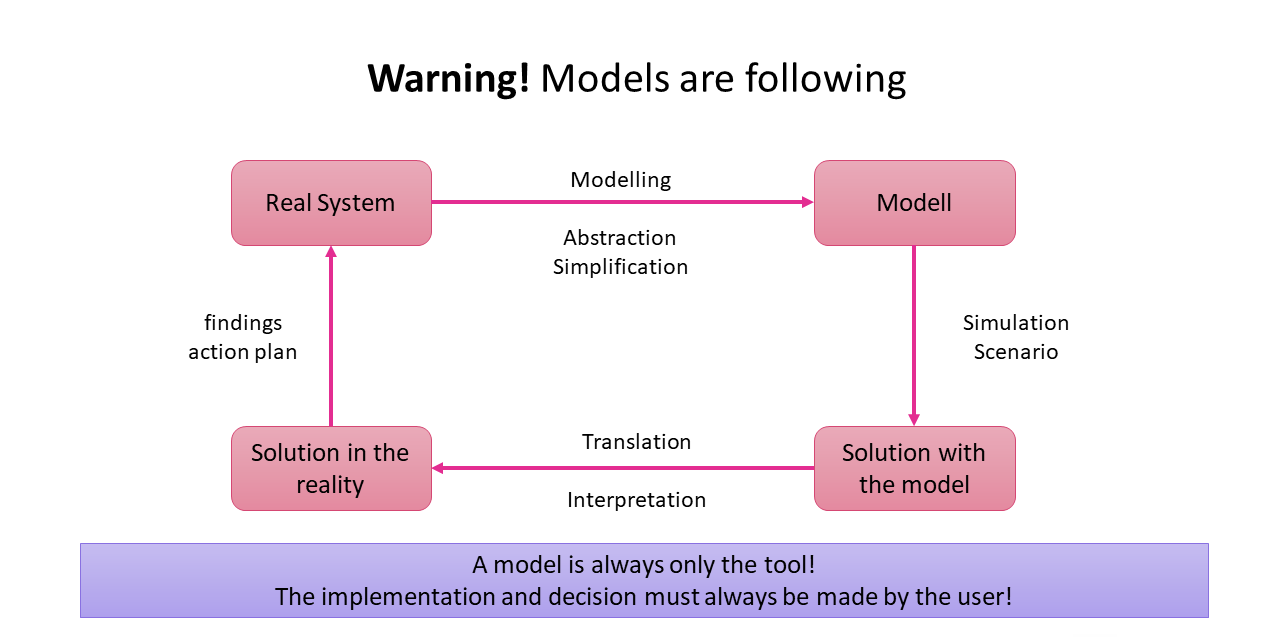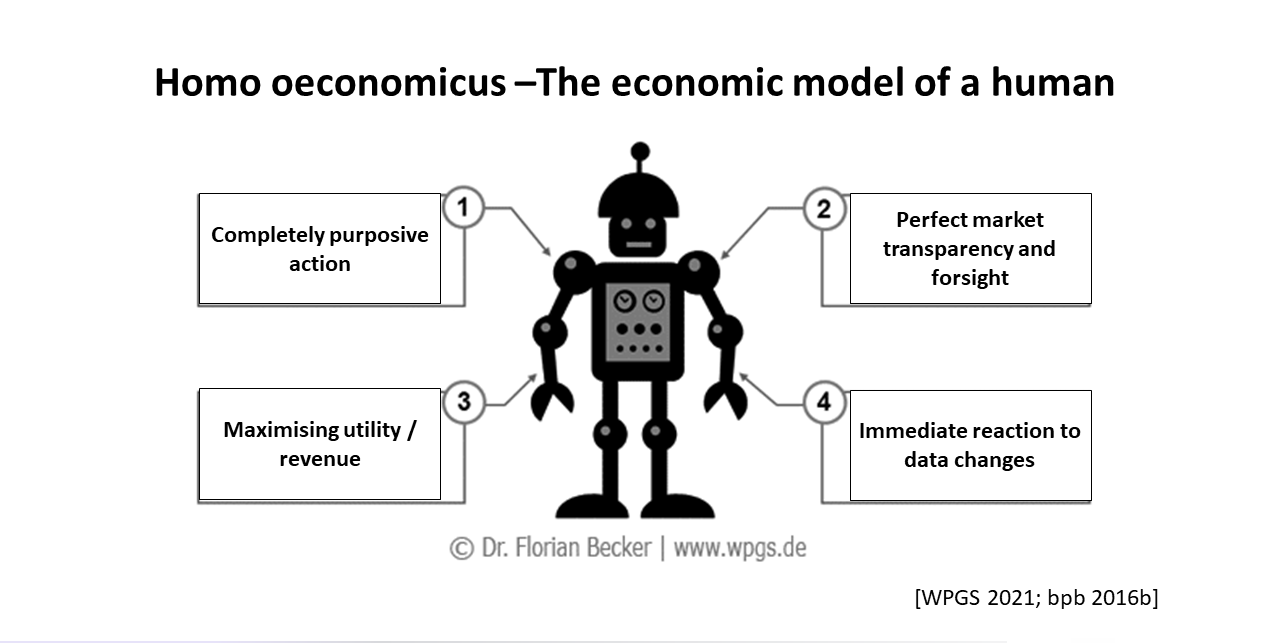Lecture 2 - Economics and Financing of Waste Management
Lecture 2 - Economics and Financing of Waste Management
1. Economics and Financing of Waste Management
1.1. Part I - Economic Theory - About Theories, Models and the Reality
First of all there is something we should be aware of when talking about models:
Whenever we are working wth theories - in the natural sciences and humanity sciences alike - we have to be aware that we are using models to help us understand complex systems which are hard to wrap your head around if not simplified and looked at single units as well as a whole system.
However, models will only ever be afterimages of the reality and hence require the user to interpret and question the results of the model.
Especially since what is understood as the reality is different for every human. While the reality described by models in natural science is hard to argue it as it can be proven, what every human understands to be juste influences their own personal understanding of good and bad.

Let's for example look at the model often used in economic theory to describe a human being: the homo oeconomicus. A being described by four distint character trades (see figure below).
The homo oeconomicus is a being that strives for maximasing is utility. As a consumer he/she tries to get as many services and products as possbile while the goal of a producer is to maximse the revenue from selling products and services.
For this to happen in the most economically optimal way the homo oeconomicus has to know everything about all goods and markets (where is the product sold the cheapest?). There also exist a full understanding how these prices will change in future and any change made to the status quo will immediatley be updated and reacted to. Furthermore the homo oeconomicus will do anything in order to achieve his/her goal of maximising his/her utility.

As a human yourself, you know that this approximation of human behaviour does not always hold true. You are no robot, so you act on your emotions and your compassion for others will not allow you to maximise your revenues under all circumstances.
What does this mean for the model of the homo oeconomicus? - The model is good enough to make predictions to behaviour in economics; even if these should never been seen as ultimate thruths but rather outcomes with a very high likelyhood.The decision will be made by a human who also has to question if the results of the model are sensible.
For economic theories taking the homo oeconomicus as a premise it will also entail that their conclusion what will be "the best option for everyone" will be the option with the largest total revenue (regardless of its distribution). However in real life the happiness of human kind is not only decided by the number of goods and services and hence people might not become happy when applying a solution which was built up on the premise that they themselves are a "homo oeconomicus". Hence the further input made by the applyer of the model are crucial. Alone a different understanding of the word "utility" can make a difference.
A fitting TED talk to this topic was given by Nick Hanauer: